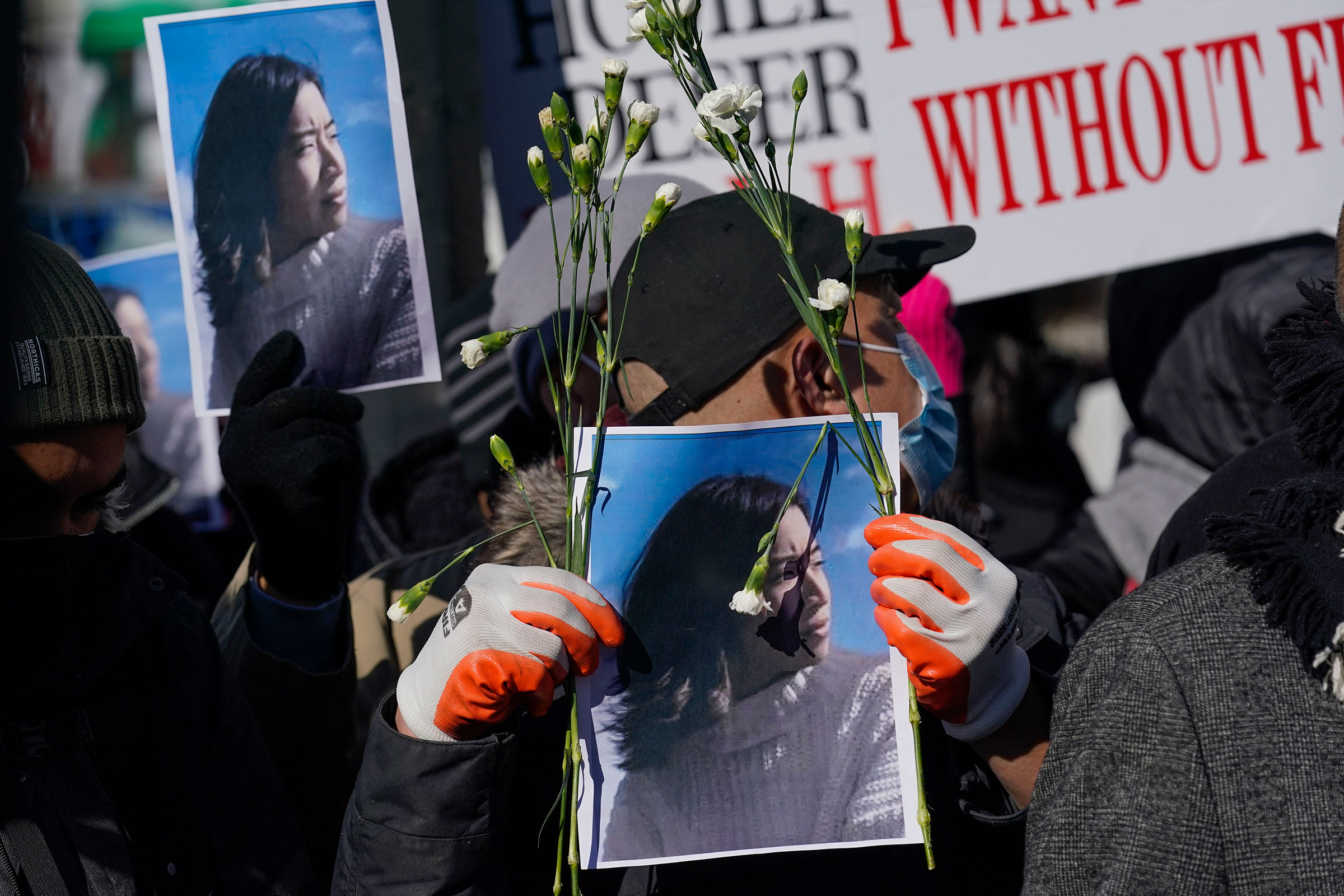One year ago, eight people were gunned down across three spas in Atlanta. Six of those who were murdered were Asian women.
Even as a group dedicated to tracking hate against our community, hearing the news unfold out of Atlanta that day shook us to our core. The depth of the tragedy was felt by AAPIs across the country, who met trauma with reckoning and resistance. In nearly every state, our community members protested in the streets, held rallies and insisted our stories be told.
But a year later, the recent killings of Michelle Alyssa Go and Christina Yuna Lee—and the nearly 11,000 hate incidents that we’ve received since we began tracking—remind us that little has changed. And the lack of progress, at least in part, is because the primary response from our elected officials has been to call for more policing. From the NYPD’s Asian Hate Crime Task Force to the federal COVID-19 Hate Crimes Act, law enforcement has been offered as the answer to anti-AAPI hate. But if we truly want to protect our community, it’s time to acknowledge that policing isn’t the primary solution.
We know this because AAPI community members are the least likely to report hate crimes to law enforcement. We are not immune to reports of blatant racism in police department ranks and officers’ connections to white nationalism. In past polls, the majority of Asian Americans have said they do not think law enforcement treats racial and ethnic groups equally. Coupled with the staunch anti-immigrant and anti-China rhetoric of the Trump administration, AAPIs can also be afraid to report crimes and compromise their immigration status or face profiling.
We also know our criminal justice system has historically not held white Americans, especially police officers, accountable for crimes against AAPIs. Examples of this stretch from the murderers of Vincent Chin who faced no prison time to the officer who killed Kuanchung Kao to the officers who recently killed Chinese American teenager Christian Hall and Filipino American Angelo Quinto. Even after the Atlanta shooting, the investigating officer Captain Jay Baker—who promoted racist T-shirts on social media that called COVID-19 an “imported virus from CHY-NA”—put out the narrative that the murders were not racially motivated and that the white shooter had had “a bad day.”

Finally, we know the vast majority of hate experienced by AAPIs does not involve criminal acts. Approximately 85% of the incidents reported to our tracking center are outside of law enforcement’s scope.
The problem with investing in ineffective solutions like policing is that they keeps us from adopting methods that will actually make us safer and that our community actually wants. These methods involve investing in our communities, not in policing.
Communities with greater access to resources not only have lower crime, they may also be less likely to experience hate. According to a recent survey we conducted, nearly three times more Asian Americans with a high school education experienced a hate incident at work compared to those with a college degree. Moreover, AAPIs also prefer investment in our community over investment in law enforcement, ranking community-based efforts, education, and civil and human rights enforcement as the top three solutions for addressing hate.
Investment in community-based efforts allows for programs including victim and survivor support, with language access provisions and culturally responsive help that allows AAPIs who have been targeted move forward with their lives. Violence prevention programs aim to stop crimes before they begin, and can help to build solidarity between AAPIs and other communities of color, instead of pitting them against one another.
Investment in AAPI education can involve schools providing ethnic studies, which is the study of race and ethnicity that centers on the histories, voices and issues of communities of color. Asian American studies programs—which are increasingly being considered around the country—promote racial empathy and solidarity, while decreasing bullying and harassment in schools, helping AAPI students thrive.
Finally, through investment in civil rights enforcement, governments and businesses can be held accountable for the harassment of AAPIs in public spaces, in shops and on public transit. In particular, this investment could be life-changing for AAPI women, who report twice as many hate incidents as men and too often bear the burden of public harassment on a daily basis.
One year after the devastating shooting in Atlanta, our community is still shaken and still suffering. Unless we change our overall approach, we will find ourselves in the same place next year, too. Fear-driven policing will not stop anti-AAPI hate. Real transformation will occur when racism is met not simply with reactions but with real, effective solutions.
More Must-Reads from TIME
- Caitlin Clark Is TIME's 2024 Athlete of the Year
- Where Trump 2.0 Will Differ From 1.0
- Is Intermittent Fasting Good or Bad for You?
- The 100 Must-Read Books of 2024
- Column: If Optimism Feels Ridiculous Now, Try Hope
- The Future of Climate Action Is Trade Policy
- FX’s Say Nothing Is the Must-Watch Political Thriller of 2024
- Merle Bombardieri Is Helping People Make the Baby Decision
Contact us at letters@time.com